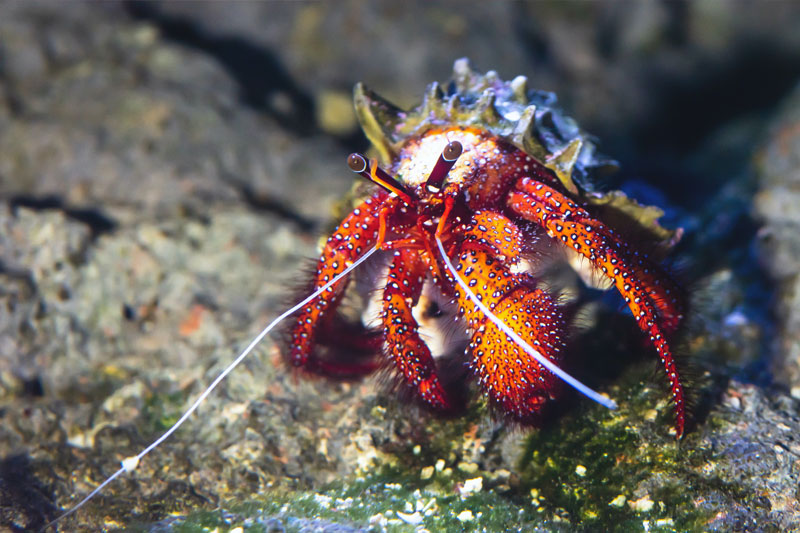Hermit crabs are not your typical household pets, but they are cute and can be quite entertaining pets for you and even for your kids if you’re a parent.
They are often mistaken as “easy” pets due to their size, but in reality they require so much care and maintenance. And these efforts will prolong their lifespan.
Did you know that in the wild, hermit crabs can live up to 30 years! Yes, you read that right, they can outlive cats and dogs. However, it’s a different story when they are in captivity – from 30 years they are expected to live for 3 years to 12 years on average. That still depends on how they are taken care of in captivity.
So, why do they live less in captivity? That is because Hermit crabs’ lifespan is proportional to the amount of care, attention, and love that is given to them. Unfortunately, many Hermit crab owners do not bother to create optimal conditions or completely ignore certain care requirements.
Why is their lifespan lessened in captivity?
There are a lot of factors that really affect their lifespan, one of which is the level of care and commitment from hermit crab owners. As mentioned above hermit crabs are often mistaken as “easy” pets so not all hermit crab owners were able to meet their needs in terms of shelter, care, and food.
Some owners don’t even bother to do research on what molting is, what their tank’s temperature and humidity level are, and a lot more.
Maybe one of the biggest factors why their lifespan is shortened in captivity is due to them not being able to breed. Like some owners won’t even bother to research how to tell if a male and a female hermit crab is and some just buy a single hermit crab. And that’s not all, their shelter should be “breed-friendly” which should meet and be able to replicate their natural habitat.
What can I do to prolong their lifespan?
If you do decide to take care of hermit crabs then these are things you can do to prolong their lifespan and of course make things easier for them.
Provide a variety of shells
- Shells, specifically snail shells are hermit crabs’ key resource for their protection and habitat. That said, snail shells don’t come around when they are in captivity, so it’s your role as an owner to find and provide them with a variety of shells that they can use over time. It is important that you provide shells of different sizes and different openings. Providing shells also prevent hermit crabs from fighting if they do not find enough shells around.
Feeding options
- Feeding is one of the most important aspects to prolong your hermit crab lifespan. Yes, there are available hermit crab pellets in pet shops, but most of them contain artificial ingredients. And just like with us humans, relying too much on and having too much food with artificial ingredients will do harm in the long term. There are a variety of fresh options for food for your hermit crabs and a lot of them are quite common to your surprise.
Level of humidity and temperature
- Hermit crabs’ shelter needs to meet a level of humidity and temperature for them to feel comfortable. Humidity is important since they need their gills moist and if you don’t know yet, hermit crabs use their gills for breathing and the moist makes it easier for them to breathe. They rely on moist and humid air to be able to breathe.
Depth of sand
- Hermit crabs burrow by nature, they tend to burrow for protection against other hermit crabs and even predators. They also do this during stressful times, especially when they are molting. That said, it’s important for you to provide them enough sand with the right depth where they will be able to burrow properly. The best way to know what is the right depth is it should be at least 3x deeper than the biggest hermit crab in your tank.
Companionship
- Despite having “hermit” in their name, hermit crabs are not solitary creatures. In fact, they are highly sociable creatures that enjoy the company of other hermit crabs. They thrive in groups in the wild and it would be best to provide them with a company when they are in captivity since this will factor in as well with their overall quality of life hence prolonging their lifespan as well.
